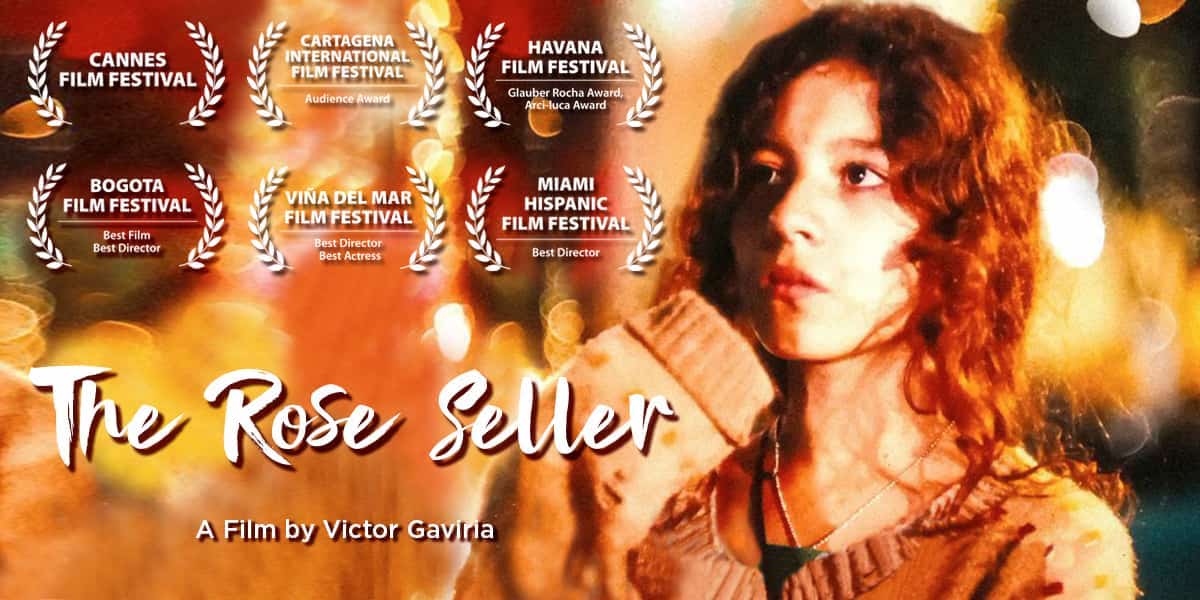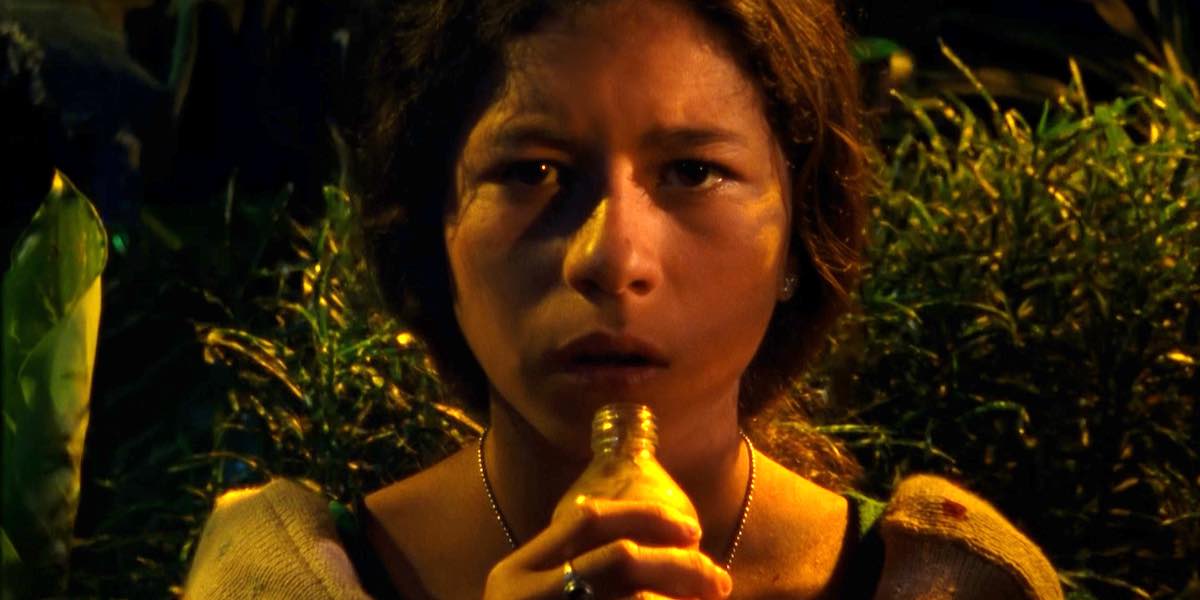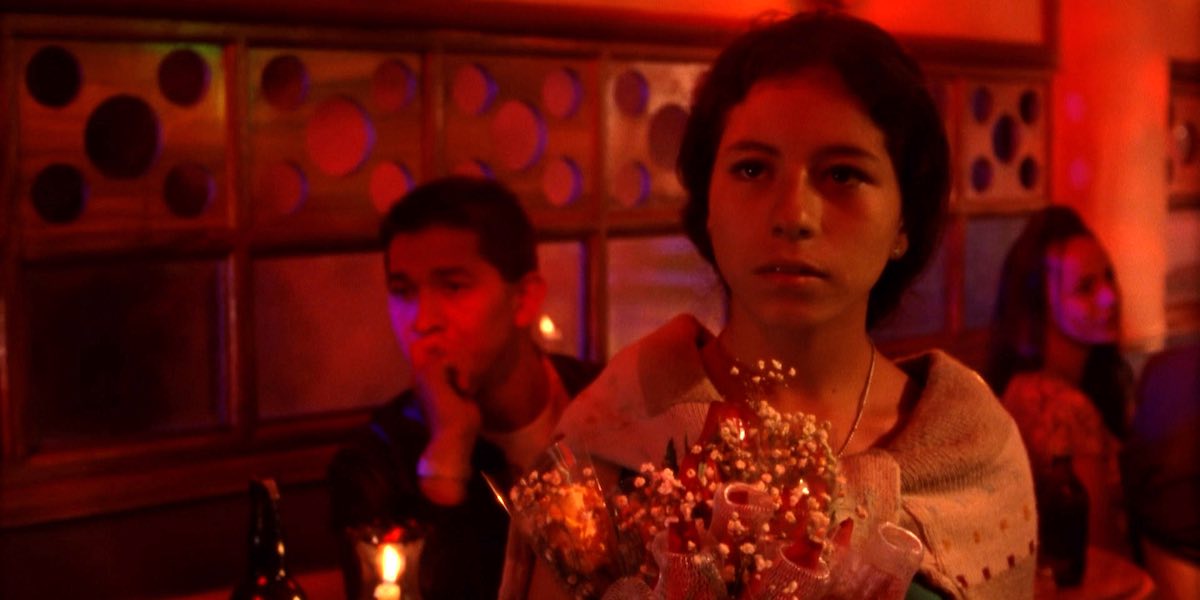The Rose Seller
(La vendedora de rosas)
Victor Gaviria / Colombia / 1998 / 115 min




Academy Award®
COLOMBIA'S SUBMISSION FOR BEST FOREIGN LANGUAGE FILMCannes Film Festival
Palme d'Or NominationCartagena International Film Festival
Audience AwardHavana Film Festival
Glauber Rocha Award, ARCI-LUCA AwardMiami Hispanic Film Festival
Best DirectorBogota Film Festival
Best Film, Best DirectorViña del Mar Film Festival
Best Director, Best ActressBratislava International Film Festival
Special Jury Prize, Best ActressAriel Awards, Mexico
Best Latin-American Film Nominee
Pricing
Related Films
 Chircales(Chircales)Marta Rodríguez & Jorge SilvaAn essential and highly influential classic for years to come, restored by the Arsenal Institut fur film und videokunst (Berlin). One of the first ...
Chircales(Chircales)Marta Rodríguez & Jorge SilvaAn essential and highly influential classic for years to come, restored by the Arsenal Institut fur film und videokunst (Berlin). One of the first ... Mute Fire(Pirotecnia)Federico Atehortúa ArteagaIn the tradition of Harun Farocki and João Moreira Salles, in this personal film essay, Federico Atehortúa Arteaga examines the relationship between ...
Mute Fire(Pirotecnia)Federico Atehortúa ArteagaIn the tradition of Harun Farocki and João Moreira Salles, in this personal film essay, Federico Atehortúa Arteaga examines the relationship between ... The Calm After the Storm(Como el cielo después de llover)Mercedes Gaviria JaramilloAfter studying abroad, Mercedes returns to her native city to join her father, acclaimed filmmaker and writer Victor Gaviria (The Rose Seller), in the ...
The Calm After the Storm(Como el cielo después de llover)Mercedes Gaviria JaramilloAfter studying abroad, Mercedes returns to her native city to join her father, acclaimed filmmaker and writer Victor Gaviria (The Rose Seller), in the ... Between Fire and Water(Entre Fuego y Agua)Viviana Gómez Echeverry, Anton WenzelCamilo is a young black man adopted by an indigenous couple in rural Colombia. He is the only black person in his community and has always felt ...
Between Fire and Water(Entre Fuego y Agua)Viviana Gómez Echeverry, Anton WenzelCamilo is a young black man adopted by an indigenous couple in rural Colombia. He is the only black person in his community and has always felt ... Machuca(Machuca)Andrés WoodACADEMY AWARD® CHILE’S SUBMISSION FOR BEST FOREIGN LANGUAGE FILM SECTION MODERN CLASSICS The story takes place in Santiago in 1973 in the days ...
Machuca(Machuca)Andrés WoodACADEMY AWARD® CHILE’S SUBMISSION FOR BEST FOREIGN LANGUAGE FILM SECTION MODERN CLASSICS The story takes place in Santiago in 1973 in the days ...Synopsis
Spanish with English subtitles
With Leidy Tabares, Marta Correa, Mileder Gil, Liliana Giraldo
ACADEMY AWARDS® COLOMBIA’S SUBMISSION FOR BEST FOREIGN LANGUAGE FILM
SECTION MODERN CLASSICS
Directed by the iconic Colombian poet and filmmaker Victor Gaviria, The Rose Seller is a poignant portrayal of life in the streets of Medellín, Colombia. Its premiere was an event that captured the attention of the entire country and has since become a cult film.
The story follows the misfortunes of a group of girls in their early teens, all separated from their families and making a living for themselves. Monica is 13 years old and has already rebelled against everything. She has created her own world in the streets, where she courageously fights to defend what little she has: her young friends, her drug dealer boyfriend, and her dignity and pride that makes no concessions to anyone. On Christmas night, like every night, she sells roses to couples in trendy nightspots and sniffs glue to fill the desperate emptiness with passing visions of lost family and friends. Monica hopes to buy herself the dream of a party with fireworks, new clothes, and a date with her boyfriend.
This film’s title deliberately recalls Hans Christian Andersen’s tragic fairy tale The Little Match Girl, which served as the model for the story of street children. Gaviria uses a constantly moving camera to follow the cast of very young nonprofessionals with relentless intensity as they travel between the slums where they live to upscale city streets and back again. The film bears astonishing witness to Gaviria’s ability to cast and work with untrained actors, several of whom, like some of the performers in Rodrigo D, were dead within months of the film’s production.
Related Subjects
About the Director
Gaviria’s films have won numerous international accolades and have been selected for some of the most prestigious festivals in the world, including Cannes and the San Sebastian Film Festival. His film The Rose Seller (1996-1998) is one of the most award-winning films in the history of Colombian cinema.
In 2009, Gaviria was granted the Colombian Ministry of Culture’s Medal of Cultural Achievement. The Medal recognized Gaviria’s accomplishments, his contributions to Colombian and Latin American cinema throughout his career, and his place as an icon of contemporary cinema. Also in 2009, the 24th Guadalajara International Film Festival in Mexico paid a special tribute to Gaviria. And in March of the same year, the Bogota Cinematheque presented a retrospective of his films that kicked off by launching the book Víctor Gaviria: 30 años de vida fílmica–Retrospectiva integral.
Press
“A powerful portrayal of those our society leaves behind and their very human struggles to stay above water and help each other even in such poverty and depravity. The Rose Seller is an outstanding drama that belongs in any public library film collection.” – J. Zimmerman, VideoLibrarian
“Gaviria invites us to reflect on violence and social inequality in Latin America and its repercussions on the lives of so many children and young people. He does this with a sensitive and humane gaze that starts from the recognition of the impossibility of translating or representing the lives of marginalized beings.” – Kenny Díaz, Palomitas de Maiz
“Gaviria is there to make the invisible ones visible, to give them back their uniqueness and their humanity, to bring the margins of society to the center of our attention...Gaviria obtains an unexpected poetry from those abrupt images, so similar to what we are. That is why The Rose Seller remains a testimony and a sharp reminder.” – Juan Carlos González, Revista Arcadia
“Director Victor Gaviria transports the Hans Christian Andersen tale The Little Match Girl to the bruising streets of Colombia in The Rose Seller.” – David Rooney, Variety
“A moving reportage because everything in it, except for the names and specific details, is real. The message is all the more effective because it does not take the form of a plea or a denunciation against a class; it is the simple reality portrayed that touches the viewer's soul. ” – Fernando Gil-Delgado, Ace Prensa
“Indispensable, a beautiful bitter fruit that will not rot.” – Ángel Fernández Santos, Diario El País
“Gaviria takes as his protagonist a thirteen-year-old girl who sells roses and builds a film where reality mixes with hallucination, documentary with fiction, violence with lyricism, peace with war. ” – Pilar Cuesta, Sensacine
Notes on the Film
“The interesting thing about this film, working with natural actors, is that there was a dialogue with them, a process of knowledge on our part and theirs as well, an acknowledgment of who we really are. Those children had nothing written, but obviously, they had their life, their memory, their memories, their words written. But it is an inverted form to the one that is supposed to be written in the more formal, bourgeois city. The lives of these children are written in a way that only becomes visible if someone wants to do it and takes the trouble to make these children’s voices heard.”
“There is another structure that is not cinematographic but of life itself, and that is the dramaturgy around Christmas Eve. Children always look forward to the fireworks, the music, the night of the 24th, and the morning of the 25th to show the presents to their neighbors; for better or worse we all look forward to it. So it was easier to make the film, putting together each episode told by the children and orienting it towards the concept of Christmas night, it was the only way to control the children’s many universes.”
– Victor Gaviria, Director